RAJINI



If there's anything spicier than a Kolhapuri chilli, it's Rajini's tongue. Her gambler husband gets the brunt of it in the mornings; haggling customers at her Sassoon Dock fish stall get generous tongue lashings as well; even the hapless ticket-checker on the 7:25 local isn't spared if the train runs late. There are only two times in a day that Rajini's tongue is quiet. Once, in the morning, when she prays silently to the goddess Mumbadevi for fair weather and a bountiful catch; the second, late in the afternoon, when she shuts shop and makes her way over to tuck into a nice hot plate of Tarleli Masa. We make sure the fish is always fresh, otherwise we wouldn't hear the end of it.


Rajini comes from the Son Koli fishing community, Bombay’s earliest inhabitants. They have practiced their traditional livelihood for hundreds, possibly thousands, of years, and have proudly retained their unique culture in the face of modernism.
The Kolis are fiercely protective of the sea and its riches, and continue to ply their trade using ancient, time-tested fishing techniques. This is increasingly important today as communities like Rajini’s are staring down a barrel.
Modern fishing practices are depleting fish populations at alarming rates. Many kinds of fish, like the Bluefin Tuna and the Chilean Sea-Bass, may soon disappear for ever. At current rates, the world’s fisheries are in imminent danger of collapsing.
The good news is that there are ways to fish sustainably which will allow us to enjoy seafood today, and ensure that healthy populations remain for generations to come. By supporting the methods of traditional fishing communities like the Kolis, we can reduce overfishing and maintain the ecology of the oceans.
We are proud that all the seafood we serve at Khadak comes from sustainable sources.
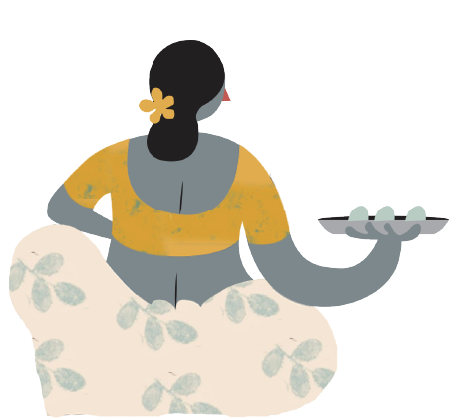
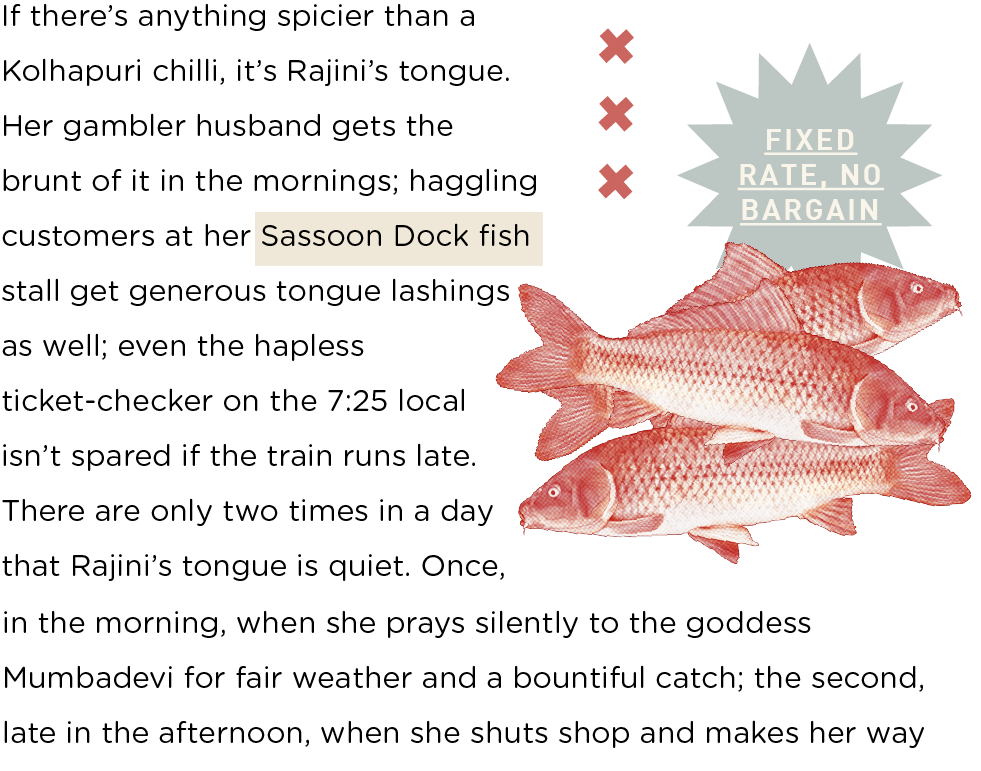
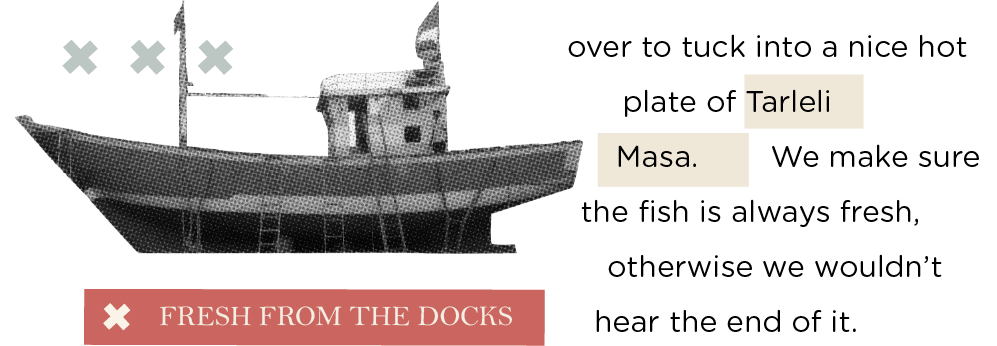
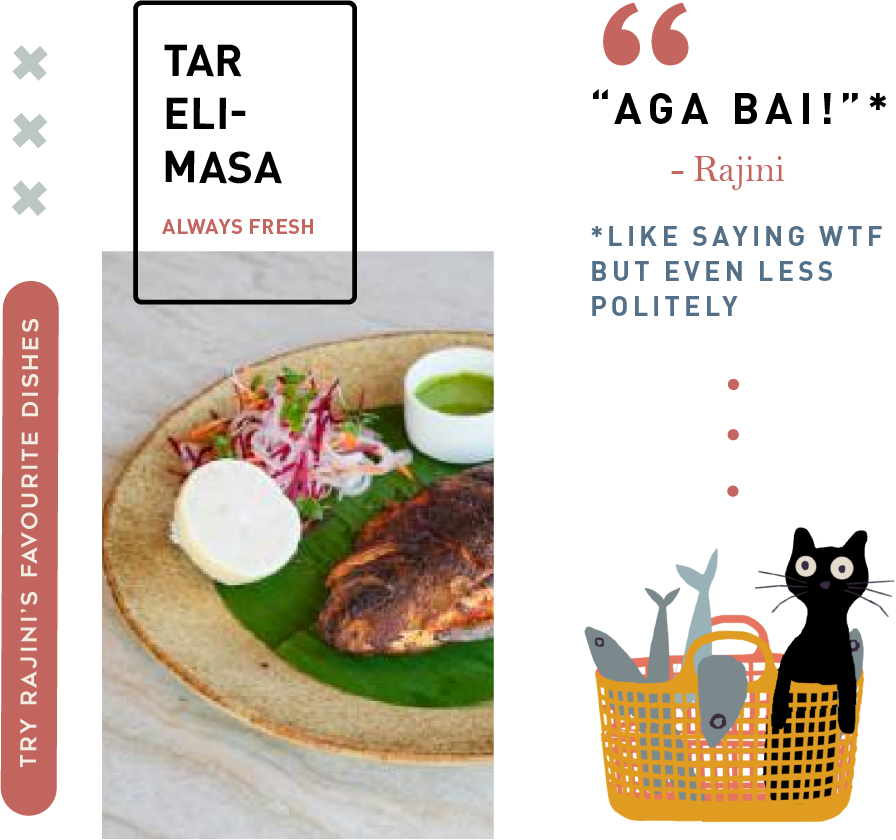
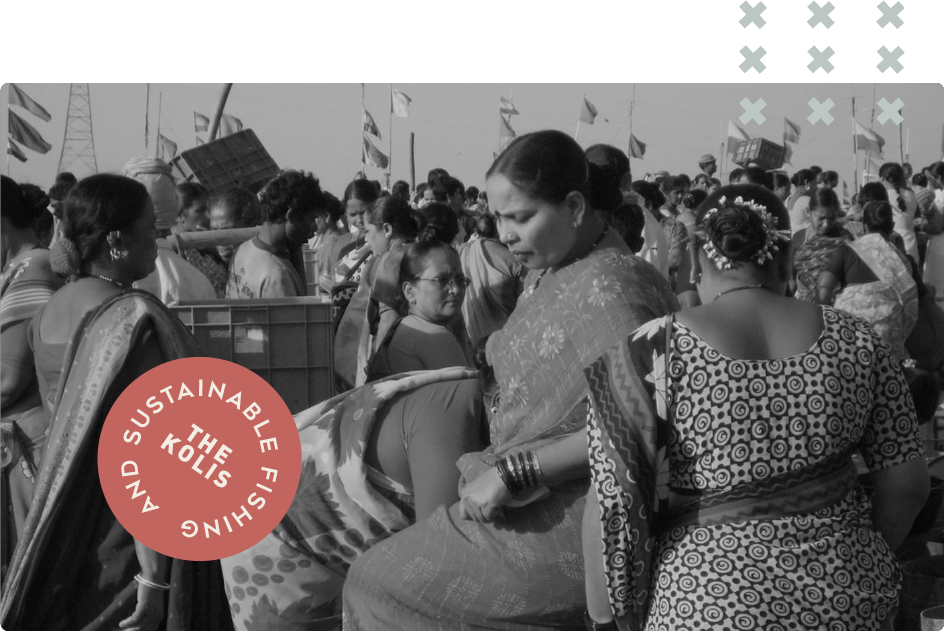
Rajini comes from the Son Koli fishing community, Bombay’s earliest inhabitants. They have practiced their traditional livelihood for hundreds, possibly thousands, of years, and have proudly retained their unique culture in the face of modernism. The Kolis are fiercely protective of the sea and its riches, and continue to ply their trade using ancient, time-tested fishing techniques. This is increasingly important today as communities like Rajini’s are staring down a barrel. Modern fishing practices are depleting fish populations at alarming rates. Many kinds of fish, like the bluefin tuna and the Chilean sea-bass, may soon disappear for ever. At current rates, the world’s fisheries are in imminent danger of collapsing.
 khadak
khadak